Islamic Thought Lecture Training
With the aim of educating teachers to teach Islamic Thought courses in universities and higher education institutions, this department was established in 2007 with the admission of a master's degree student in the field of Islamic theoretical foundations in the Faculty of Theology and Religious Studies. Admission in other disciplines was also added. From the first semester of 2012, doctoral students were admitted to this group. At present, this group continues its activities in five disciplines: Islamic ethics, theoretical foundations, Islamic revolution, Quran and hadith, and history of Islamic culture and civilization. Students of this scientific group are studying in two doctoral and master's degree programs in five fields: theoretical foundations of Islam, Islamic history and civilization, Quran and Islamic texts, Islamic Revolution and Islamic ethics. Currently, Dr. Rahim Dehghan is head of this group.
Faculty members :
- 1. Dr. Mostafa Azarakhshi, Assistant Professor of Quran and Islamic Texts
- 2. Dr. Maryam Khoshdel Rouhani, Assistant Professor of Theoretical Foundations of Islam
- 3. Dr. Rahim Dehghan, Assistant Professor of Islamic Ethics (and Philosophy of Ethics)
- 4. Dr. Seyed Mohsen Sadat Kiai, Assistant Professor of Islamic Ethics
- 5. Dr. Morteza Semnon, Assistant Professor of Islamic Revolution and Islamic Studies
- 6. Dr. Marzieh Mohasses, Assistant Professor of Quran and Islamic Texts
- 7. Dr. Abbas Mirzaei Nokabadi, Assistant Professor of Islamic History
- 8. Dr. Ebrahim Noei, Assistant Professor of Theoretical Foundations of Islam
- 9. Dr. Fatemeh Vajdani, Assistant Professor of Islamic Ethics and Education
- 10. Dr. Seyyed Ahmad Hashemi Aliabadi, Assistant Professor of Quran and Islamic Texts
- 11. Dr. Hadi Salehizadeh, Assistant Professor of Islamic History
Objectives of the Department:
- 1. Training of teachers in the field of Islamic sciences and education in both fields of intellectual and traditional doctrines to teach Islamic education courses in universities and higher education institutions;
- 2. Strengthening and improving the level of scientific and educational abilities of candidates for teaching Islamic education courses;
- 3. Strengthen the ability of professors to answer theological questions
- 4. Training graduates who can continue their studies in fields related to Islamic education.
- 5. Training researchers to produce scientific and specialized works in the field of theology and Islamic education and issues related to Islamic education courses that are used in various scientific and research centers.
- 6. Deepening and developing the power and scientific and technical skills of those interested in Islamic studies and teaching Islamic education courses

